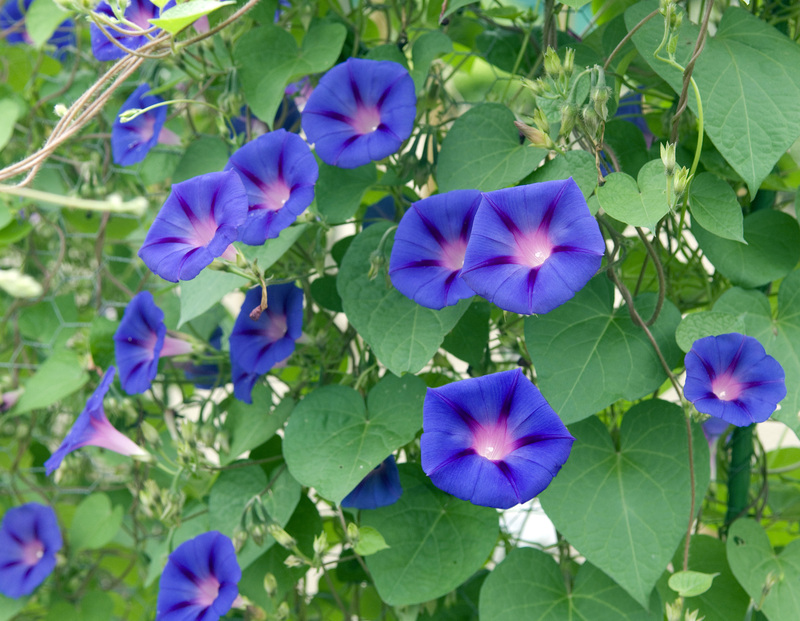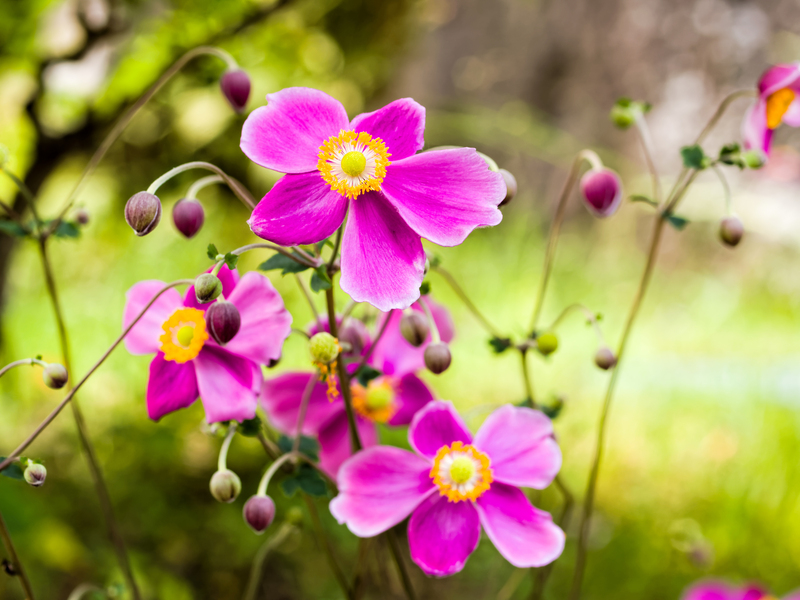Harnessing Organic Waste to Enrich Your Garden
Posted on 02/07/2025
Harnessing Organic Waste to Enrich Your Garden: A Complete Guide
Gardening enthusiasts are always searching for ways to cultivate healthier, more productive gardens while minimizing environmental impact. One powerful, accessible solution is harnessing organic waste to enrich your garden. Turning kitchen scraps, yard clippings, and other biodegradable materials into nutrient-rich compost offers a sustainable way to improve soil health, reduce landfill contribution, and encourage robust plant growth. In this comprehensive guide, we'll explore best practices, scientific benefits, and actionable steps you can take to unleash the power of organic waste in your very own green space.
What is Organic Waste?
Organic waste consists of materials derived from living organisms--including plants, animals, and food byproducts--that naturally decompose. Common sources of organic waste include:
- Kitchen scraps: Fruit and vegetable peels, coffee grounds, eggshells, tea leaves
- Yard and garden debris: Grass clippings, leaves, dead flowers, small branches
- Paper products: Unbleached paper towels, napkins, and cardboard pieces

Why Harness Organic Waste for Your Garden?
There are numerous compelling reasons to embrace organic waste recycling in your garden. Let's delve into the major benefits:
- Soil Enrichment: Organic waste decomposition creates compost full of nutrients like nitrogen, phosphorus, and potassium, which support healthy plant growth.
- Reduced Waste: Composting diverts significant amounts of waste from landfills, supporting sustainability and environmental stewardship.
- Improved Soil Structure: Compost enhances soil aeration, water retention, and drainage, creating an optimal growing environment for roots and beneficial organisms.
- Natural Disease Resistance: Compost improves plant immunity and resilience by fostering beneficial soil microbes.
- Cost Savings: Producing your own organic fertilizer reduces dependence on commercial soil amendments.
Composting: The Cornerstone of Garden Enrichment
Understanding the Composting Process
Composting is the natural process of breaking down organic waste into a dark, nutrient-rich material called humus. Microorganisms--such as bacteria, fungi, and earthworms--consume organic matter, turning it into valuable compost your garden will thrive on. Successful composting hinges on balancing four primary elements:
- Carbon (Browns): Dry leaves, twigs, paper products
- Nitrogen (Greens): Fresh grass clippings, food scraps, coffee grounds
- Water: Maintains moisture for microbial activity
- Oxygen: Supports aerobic decomposition through regular turning or aeration
The ideal ratio for effective composting is approximately three parts "browns" to one part "greens."
How to Start Composting at Home
Ready to harness organic waste for garden enrichment? Follow these key steps:
- Choose a Composting Method:
- Backyard compost pile or bin - Ideal for those with ample outdoor space
- Vermicomposting - Uses worms (typically red wigglers) in a container, suitable for smaller homes
- Bokashi bins - Makes use of beneficial microbes for indoor, odor-free composting
- Select the Right Location: Place your compost bin in an area with good drainage and access to sunlight.
- Layer Your Materials: Begin with a base of coarse "browns," add alternating layers of greens and browns, and keep the pile moist but not soaked.
- Turn the Pile Regularly: Every two to four weeks, mix your compost to aerate and encourage even decomposition.
- Monitor and Harvest: In two to six months (depending on conditions and method), your compost will be ready when it becomes dark, crumbly, and earthy-smelling.
What NOT to Compost
While most organic waste is beneficial, some materials should be avoided to prevent attracting pests, foul odors, or introducing harmful pathogens:
- Meat, fish, or dairy products
- Oily or greasy foods
- Diseased plants or invasive weeds
- Pet waste
- Glossy or colored papers
- Coal or charcoal ash
Alternative Ways to Harness Organic Waste in the Garden
Mulching with Organic Waste
Instead of sending leaves, grass clippings, or shredded bark to the landfill, use them directly as mulch to:
- Conserve soil moisture
- Suppress weed growth
- Reduce soil erosion
- Gradually add nutrients as the mulch breaks down
Green Manures and Cover Crops
Also known as "living mulch," green manures are fast-growing plants (like clover, rye, or vetch) planted between growing seasons. They:
- Protect soil from erosion
- Add organic matter when tilled under
- Fix nitrogen in the soil (if using legumes)
Direct Application of Uncomposted Scraps
Some gardeners in a hurry will trench compost--digging kitchen scraps directly into trenches between rows or under fruit trees. This technique is best with chopped, non-greasy, vegetable scraps, and should be buried at least 8 inches underground to deter animals and ensure effective decomposition.
Maximizing Garden Benefits from Organic Waste
Here are some expert tips on fully leveraging organic waste for maximum garden enrichment:
- Test Your Soil: Before amending, use a soil test kit to identify existing nutrient levels and tailor your compost or waste inputs accordingly.
- Balance is Key: Over-application of uncomposted materials can lead to nitrogen lock-up or pest issues. Always aim for moderation and proper mixing into soil.
- Rotate Waste Sources: Varying ingredients ensures a diversity of nutrients, enhancing soil microbe health and long-term fertility.
- Observe Crop Response: Monitor plant health after each organic amendment and adjust future batches for continuous improvement.
Organic Waste Composting: Best Practices for Success
- Shred or Chop Materials: Smaller pieces decompose faster and more uniformly.
- Maintain Moisture: Compost should feel like a wrung-out sponge--add water during dry spells if needed.
- Monitor Temperature: Hot compost piles (130-150?F) break down waste swiftly and kill most weed seeds or pathogens.
- Add Air: Frequent turning or using a compost aerator ensures aerobic decomposition and prevents odors.
- Let Compost Mature: Finished compost is dark, crumbly, and has no recognizable food particles or foul smells.
DIY Composting Tools and Bins
Modern composting is easier than ever, thanks to accessible DIY and commercial solutions:
- Compost tumblers: Rotate easily for fast aeration, ideal for suburban backyards
- Wire or wooden bins: Budget-friendly and simple to build at home
- Kitchen compost crocks: Odor-sealed counterside holders for collecting organic waste before it hits the pile
- Worm bins: Small-scale vermicomposting using containers, bedding, and red wiggler worms
Practical Applications: Where and How to Use Compost in the Garden
- Vegetable Beds: Incorporate 1-2 inches of mature compost before planting for a nutrient boost.
- Flower Borders: Top-dress perennials with compost in spring to encourage blooms and suppress weeds.
- Tree Basins: Spread compost under fruit trees out to the drip line for gradual nutrient release.
- Potting Mix: Replace commercial potting soil with a homemade blend of compost and coir for container gardens.
- Lawn Topdressing: Screened compost can be applied to lawns to stimulate healthy, green turf.
FAQs About Harnessing Organic Waste to Enrich Your Garden
1. How long does composting take?
Depending on your method and environmental conditions, composting can take anywhere from 2 months (hot composting) to a year (cold composting).
2. Can you compost citrus peels and onion skins?
Yes, both are safe in moderation. Spread throughout the pile to encourage balanced decomposition.
3. Will composting attract rodents or pests?
Properly maintained compost piles (without meat, dairy, or greasy foods) do not usually attract pests. Bury fresh scraps and turn the pile regularly for best results.
4. Is compost from organic waste safe for all plants?
Absolutely. Well-matured compost is gentle, improves soil quality, and is suitable for vegetables, flowers, shrubs, and trees.

The Environmental Impact: Why This Matters
Repurposing organic waste for garden improvement has ripple effects far beyond your backyard:
- Reduces landfill overcrowding and greenhouse gas emissions
- Minimizes reliance on chemical fertilizers and pesticides
- Supports biodiversity by improving soil health and structure
- Encourages a closed-loop, regenerative approach to gardening
By harnessing the full cycle of organic waste, you contribute to a healthier ecosystem, conserve resources, and raise the sustainability bar in your community.
Conclusion: Make Your Garden Thrive With Organic Waste
Harnessing organic waste to enrich your garden is a multifaceted solution that transforms kitchen scraps and yard debris into "black gold." Embracing composting and mulching not only empowers your plants to reach their fullest potential but also advances environmental stewardship. From improved soil structure and better moisture retention to sustainable waste reduction, the rewards are both immediate and far-reaching.
Start today by designating a compost bin, mulching your beds, or experimenting with green manures. With each handful of recycled matter, you're ensuring a more vibrant, resilient, and sustainable garden for seasons to come. Your garden--and the planet--will thank you.
Latest Posts
Keeping Your Garden Safe from Extreme Weather Events
Transforming Urban Spaces with Vertical Gardening
Crafting a Playful and Safe Garden for Children
Conquer Your Garden Foes: Three Proven Weed Control Techniques
Fun and Safe Outdoor Spaces: Crafting a Child-friendly Garden

